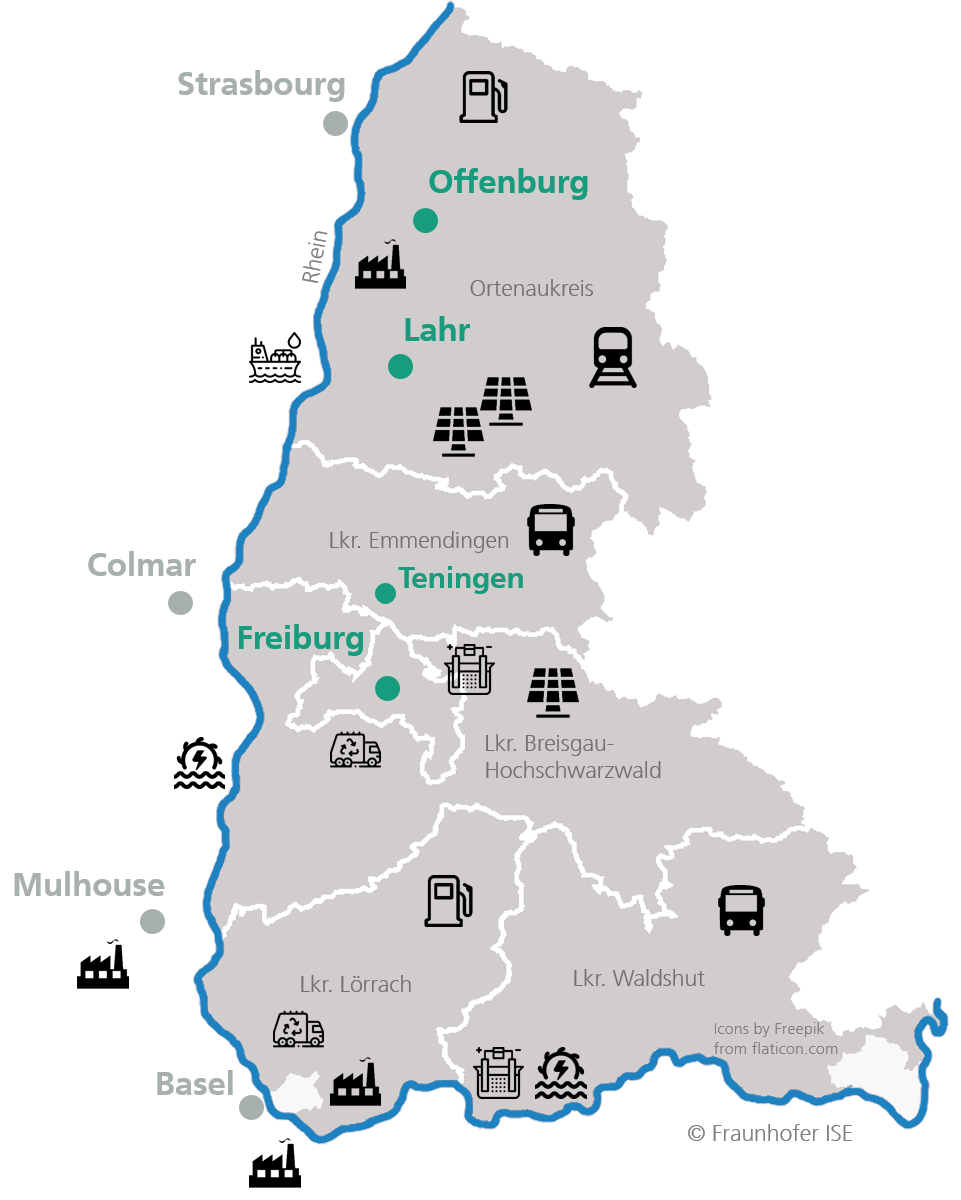| Duration: | 12/2019 - 11/2021 |
| Contracting Authority/ Sponsors: |
Ministry for the Environment, Climate and Energy of the State of Baden-Württemberg |
| Project Partners: | Cooperation partners: Upper Rhine climate partners, bnNetze, Teningen municipality, Offenburg University of Applied Sciences, BASI, Energiedienst; Associated partners: Fischer Group (Achern), LADOG, Ökostromgruppe Freiburg, City of Freiburg, City of Lahr, City of Offenburg, Trapico, Freiburg Chamber of Crafts, Idée Alsace, Regionalverband Südlicher Oberrhein;Subcontracting partners: German Hydrogen and Fuel Cell Association, Stadtmobil Südbaden, Sterr-Kölln & Partner; External expert: Öko-Institut; partners in information exchange: H2Mobility, Energiesysteme Mayrhofer, DB Südbadenbus, IHK Südlicher Oberrhein |
| Website: | https://h2-so.de/ |
| Project Focus: |
H2-SO – Hydrogen Technologies in the Southern Upper Rhine

Electrolysis and hydrogen are recognized in many studies as an important component of the future energy system. Hydrogen not only serves as a flexible and large-volume storage but also has many applications in almost all sectors. Despite a great need for emissions reduction and a large number of successful demonstration and test projects, green hydrogen is not present in the German energy system, with the exception of some few niche cases. The reasons for this vary with the different applications. In some sectors suitable products are still not available, while in others research and material issues dominate or in still others regulation is problematic.
The H2-SO project supports the introduction of hydrogen into the different sectors of the energy system. The project objective is to bring together the many relevant cross-sectoral players in the Southern Upper Rhine region with regard to hydrogen and fuel cell technology. In a real-life laboratory and using several applications and technology demonstrations as examples, the present obstacles hindering the implementation of hydrogen and fuel cell technology will be identified in an intensive round of discussions. Solutions for future dissemination of the technologies will be proposed. The use of hydrogen in industry and mobility applications, in the off-grid power supply, the natural gas grid and for municipal services will be addressed in addition to hydrogen transport (and trade) in the gas grid and by trailer as well as its production/supply in the region.
Beyond the mere dissemination of knowledge, the results are to be implemented in the following ways: by contributing to the regional measures and climate protection plans, developing a hydrogen roadmap for the region, documenting the case studies for subsequent projects, recommending action plans for regional and cross-regional players and by supporting networking between the regional players beyond the project duration through information exchange platforms and the networks established in the project
The project consortium is made up of an interdisciplinary network of partners from all relevant players across all sectors. Further players and partners shall be integrated into the project during its duration.
A survey is currently being carried out in order to determine the maximum potential for hydrogen utilization in companies in the Southern Upper Rhine region.
We would be pleased if you would participate: